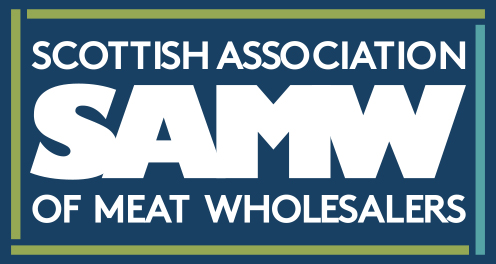FSA need to change approach to meat plant enforcement
August 24 2010
Scotland’s meat wholesalers have challenged the Food Standards Agency
(FSA) to address meat inspection ‘enforcement problems’ as a matter of
urgency.
The call, contained in a letter to FSA from the Scottish Association of
Meat Wholesalers (SAMW), follows the publication of a detailed
enforcement review by a leading industry figure who concluded that the
Agency’s current approach to enforcement was extremely ‘heavy-handed’
in its reliance on the use of criminal law to deal with issues which
were, at worst, civil law matters.
The enforcement review, carried out by Alan Kirkwood, a highly
respected figure in the Scottish industry with experience of both
running abattoirs and policy development, acknowledged the crucial
importance of enforcement during the early days of the BSE crisis. The
subsequent introduction of FSA in 2000 had also helped build consumer
confidence.
However, Mr Kirkwood also points out that while BSE has all but
disappeared from the UK, the regulatory regime from the peak years
largely exists to this day. He is extremely critical of the way in
which today’s regulations are being applied to the industry with FSA
behaving like a police force, ready to bring criminal cases against
companies when no actual risk to human health is evident.
“This is damaging, both to industry and the reputation of a Government
publicly committed to reducing bureaucracy and red tape,” he said.
“There has to be a line drawn so that industry is subject to
proportionate treatment and reasonable costs and FSA can become a
modern proportionate regulator subscribing to mainstream Government
business policy and practice.
“The biggest stumbling block to a more consensual, risk-based approach
would appear to be the fact that although, publicly, the FSA is making
some encouraging noises about working together, the common reality is
that unnecessary conflict with the meat industry is still far too
evident.”
Mr Kirkwood’s overall conclusion identifies three options on
enforcement: (a) do nothing, (b) scale back legislation or (c) leave
controls in place, but curtail legal prosecutions on all incidents
except those involving conscious gross negligence.
In favouring the third option, he adds that this would protect public
confidence in the knowledge that the industry was still under
independent publicly controlled supervision while at the same time
wiping away the ‘one size fits all’ approach to enforcement which
polices the industry to the lowest common denominator and with the
constant threat of prosecution.
Alan Craig, SAMW president, welcomed the review, adding: “For too long
the FSA has espoused partnership working with abattoirs to deliver
proportionate, risk-based controls, whilst falling well short of these
aspirations in practice. We have had members dragged through the courts
and criminalised for miniscule breaches of regulations which were not
in any way negligent or a tangible threat to meat hygiene or public
health.
“I agree entirely with Mr Kirkwood that the FSA need to seriously
review their approach to enforcement. The current draconian approach,
which they claim is the only course of action open to the agency, does
nothing to promote the harmonious and pragmatic working relationship we
all strive for and indeed, the public deserve.
“Imagine, for example, a typical abattoir slaughtering say 1000 cattle
a week and commanding an unblemished record on the removal of spinal
cord for four years. That’s a case of successfully dealing with 388
miles of spinal cord! If, however, an operative failed to remove the
equivalent of a one human fingernail sized piece of spinal cord, the
owner/manager would be prosecuted, with FSA claiming that this is their
only option.”
END
